-
Thursday, 24 January
Session 1
Radical Citizen and Aesthetic Politics
An introduction to the Spanish Transition as a critical device. The myth and its different counternarratives. The conceptual aporias of the 1970s: citizen/State, history/memory, aesthetics/history, politics/culture, counterculture/official culture. Five transitional models: heroic, melancholic, civic-popular, memorial and necropolitical. Networks of counterculture and the civic-popular paradigm: relationships between social movements and cultural actionism in the 1970s. Citizen forms and ephemeral aesthetics. Documentary devices and memory.
-
Friday, 25 January
Session 2
Poetics of Democracy
This session is structured around a conversation between the Museo Reina Sofía’s Rosario Peiró, Lola Hinojosa and Carla Giachell.
Architecture from the exhibition The Poetics of Democracy. Images and Counter-Images from the Spanish Transition. The Venice Pavilion of 1976 and mutations from the Anti-Franco cultural field. Curatorial archaeology and exhibition machines. Street documents: artistic forms of social movements. The new transitional left and its historical subjects: feminisms, neighbourhood associations, neighbourhood culture and the libertarian movement. Counterculture and its spaces: festivals, hangouts and magazines. A transitional subject: dangers to society, psychiatric patients and gender dissidents. Vampire imagery from the Transition. Figures and forms of constitutional culture.
-
Monday, 28 January
Session 3
The Sides of Shadows. Critical Aesthetics from the 1970s
This session is structed around a conversation with Anxo Rabuñal, curator of O lado da sombra: sedición gráfica e iniciativas raras ou desacreditadas entre 1971 e 1989 (A Coruña, Seoane Foundation, 2005).
A curatorial history of Iberian countercultures (i). The Sides of Shadows: the story of a Galicia-based exhibition project. Alternative genealogies: centre-periphery dynamics in the transitional archive. Seville, Galicia, Barcelona and the Basque Country: centrifugal and centripetal logics of 1970s countercultures. Artistic and exhibition devices from counterculture in Galicia, between the popular and the avant-garde: publishing, poetry, music and performing arts. Félix Guattari and Allen Ginsberg in Santiago: the history of Conxo and the impossible archive of transitional anti-psychology. Iberian-Galician machines for living: the curatorial circulation of Llorenç Soler, Anna Turbau and César Portela.
-
Wednesday, 30 January
Session 4
Prohibited Archives. The Impossible Imaginary of the Democracy
Memory and form in post-Francoism: the formal construction of hegemonic accounts of the Transition and capturing civil imaginaries from the 1970s. Co-opting, erasing, displacing and resemantization: formal mechanisms of the foundational discourse of democracy. The privatisation and nationalisation of collective heritage. A curatorial history of Iberian countercultures (ii). Lines of shadow: underground continuities, interposed inheritances and civil re-appropriations of 1970s forms. Ephemeral Transition archives today: online archivists, citizen memories and network culture in the crisis of the 1978 regime. Other transitions: remakes and revivals.
-
Thursday, 31 January
Session 5
Oral Memories and the Democracy to Come
This session constitutes a survey of urban space in the Transition, in the form of a critical-memorial wander around Madrid’s Malasaña neighbourhood with a testimony mediation.
The Transition and its (non)places of memory. Institutional memory and underground memories of the (post)transitional city. The visible and invisible marks of counterculture in public space. The Movida Movement and the city-Movida: an urban account of the spatial metamorphoses from the Maravillas neighbourhood to present-day Malasaña. From neighbourhood struggles to fights against gentrification: political mutations of space in the shift towards immaterial capitalism. Plaza Dos de Mayo and its civic and national monumentalities. Archaeologies of the glance and the poetics of testimony: accounts and figures of 2 May 1977. The history and memory of a transitional icon: the photography of Félix Lorrio.
A Change of Aesthetics: Citizen Ruptures in the Spanish Transition
A course conducted by Germán Labrador
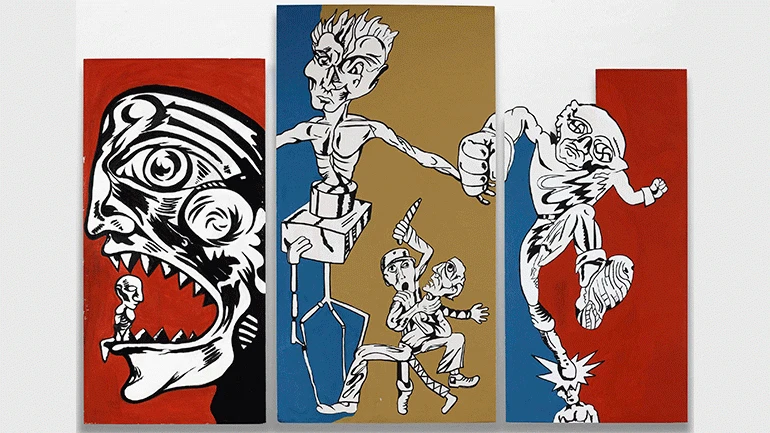
Held on 24, 31 Jan 2019
This course, with its design rooted in the exhibition The Poetics of Democracy. Images and Counter-Images from the Spanish Transition, explores the imaginary of 1970s Spain from a central hypothesis: the articulation, in the confrontation with Francoism and post-Francoism, of citizens’ breakaway resulting from an upsurge in certain aesthetic practices. Through these practices, new political subjects were shaped in opposition to the regime’s institutions and forms of discipline. This other society included women, young people, neighbourhood groups and “dangers to society”, the last of which refer to the Francoist Law that stigmatised those considered a menace to the regime, from beggars to homosexuals. In parallel, the emergence of this multifarious civil society and its struggles for emancipation questions the limits of the dictatorship and the transition to democracy, its practices producing and organising alternative forms of culture and social and urban models, in addition to ways of life referred to here inside this framework as ‘transitional’. The documents of such actions and proposals constitute a democratic archive, susceptible to questioning, in exhibition terms, and intervened in from the present. Thus, to think about the transitional legacy means to reflect upon the origins, devices and limits of democracy, and imagine its possible transformations.
Across five sessions and in conversation with other voices, Germán Labrador Méndez, a professor and researcher of Cultural Studies at Princeton University, sets forth a critical survey of the accounts of democracy founded through the tension between archive and myth, challenging predominant expectations surrounding the period through diverse analytical strategies. Oral memory and documents from other transitions which occurred at the time (neighbourhood, youth, autonomous, psychiatric, gender…) speak of unrepresented historical experiences in the official foundational discourse of post-Francoism and the utopian potential they possess with respect to an alternative citizen genealogy.
Consequently, drawing on the exhibition The Poetics of Democracy. Images and Counter-Images from the Spanish Transition as a critical and methodological tool, this course explores aesthetic mechanisms from 1970s Spain to focus on their transformative potential. Approaching the crossroads between culture and politics in the framework of a democracy still to come, discussions will revolve around notions of public space, the urban experience, aesthetic ruptures, the subversion of daily life, bio-literature, civil imagination, generational destruction and ephemeral memory. Moreover, the issue of transient cultural forms – minor and often anonymous – will thread together the different sessions, each analysing the way in which a time of civil conversation, the occupation of public space, the affirmation of subaltern political subjects or aesthetic disputes involve the questioning of democracy.
The sessions will take place both in the Museo, in a lecture room and in different exhibition rooms, and in Madrid’s Malasaña neighbourhood, in wanderings around and explorations of the city. Upon the conclusion of the course, on Friday 1 February, the Museo will go on to hold the conference Abductions of the Imagination. A Conference on Post-Francoism Counterculture, a public activity centred on examining Spanish counterculture during the Transition.
Organised by
Museo Reina Sofía
Participants
Course director
Germán Labrador Méndez is head professor in the Spanish and Portuguese Department at Princeton University. His research in the field of cultural history specialises in the relationship between aesthetics and politics, citizenship and memory in a contemporary Iberian context. He is the author of Letras arrebatadas. Poesía y química en la transición española (Devenir, 2009) and Culpables por la literatura. Imaginación política y contracultura en la transición española (1968-1986) (Akal, 2017), and is currently writing a paper on the political and cultural responses to the 2008 crisis and working on an anthology of underground poetry. He is also one of the curators of the exhibition The Poetics of Democracy. Images and Counter-Images from the Spanish Transition.
Participants
Carla Giachello is an intern in the Museo Reina Sofía Collections Department and assistant curator of the exhibition The Poetics of Democracy. Images and Counter-Images from the Spanish Transition.
Lola Hinojosa is a curator of Performing Arts and Intermedia at the Museo Reina Sofía and co-curator of the exhibition The Poetics of Democracy. Images and Counter-Images from the Spanish Transition.
Rosario Peiró is head of the Museo Reina Sofía Collections Department and co-curator of the exhibition The Poetics of Democracy. Images and Counter-Images from the Spanish Transition.
Anxo Rabuñal is a curator and researcher. He is the curator of O lado da sombra: sedición gráfica e iniciativas ignoradas, raras ou desacreditadas entre 1971 e 1989 (Luis Seoane Foundation, 2005), a show which seeks to trace popular culture in the non-institutional scene in Galicia at the end of Francoism and during the Transition.
Más actividades

Difficulty. Forms and Political Effects of Deviation in Writing and Contemporary Art
23 February – 14 December 2026 – Check programme
Difficulty. Forms and Political Effects of Deviation in Writing and Contemporary Art is a study group aligned towards thinking about how certain contemporary artistic and cultural practices resist the referentiality that dominates the logics of production and the consumption of present-day art. At the centre of this proposal are the concepts of difficulty and deviation, under which it brings together any procedure capable of preventing artistic forms from being absorbed by a meaning that appears previous to and independent from its expression. By ensuring the perceptibility of their languages, difficulty invites us to think of meaning as the effect of a signifying tension; that is, as a productive and creative activity which, from the materiality of art objects, frees aesthetic experience from the representational mandate and those who participate in it from the passiveness associated with tasks of mimesis and decoding.
The economy of the referential norm translates the social logic of capitalism, where insidious forms of capturing subjectivity and meaning operate. In the early 1980s, and adopting a Marxist framework, poet Ron Silliman highlighted how this logic entailed separating language from any mark, gesture, script, form or syntax that might link it to the conditions of its production, rendering it fetichised (as if without a subject) and alienating its users in a use for which they are not responsible. This double dispossession encodes the political strategy of referential objectivity: with no subject and no trace of its own consistency, language is merely an object, that reality in which it disappears.
The political uses of referentiality, more sophisticated today than ever before, sustain the neoliberal-extractivist phase of capitalism that crosses through present-day societies politically, economically and aesthetically. Against them, fugitive artistic practices emerge which, drawing from Black and Queer studies and other subaltern critical positions, reject the objective limits of what exists, invent forms to name what lies outside what has already been named, and return to subjects the capacity to participate in processes of emission and interpretation.
Read from the standpoint of artistic work, the objective capture of referentiality may be called transparency. Viewed from a social contract that reproduces inequality in fixed identity positions, transparent in this objectivity are, precisely, the discourses that maintain the status quo of domination. Opposite the inferno of these discourses, this group aims to collectively explore, through deviant or fugitive works, the paradise of language that Monique Wittig encountered in the estranged practices of literature. For the political potency of difficulty — that is, its contribution to the utopia of a free language among equals — depends on making visible, first, its own deviations; from there, the norm that those deviations transgress; and finally, the narrowness of a norm which in no way exhausts the possibilities ofsaying, signifying, referring and producing a world.
From this denouncement of referential alienation, fetishisation and capture, Difficulty. Forms and Political Effects of Deviation in Writing and Contemporary Art turns its attention to the strategies of resistance deployed by contemporary artists and poets. Its interest is directed towards proposals as evidently difficult or evasive as those of Gertrude Stein, Lyn Hejinian, Theresa Hak Kyung Cha, Kameelah Janan Rasheed, Kathy Acker, María Salgado and Ricardo Carreira, and as seemingly simple as those of Fernanda Laguna, Felix Gonzalez Torres and Cecilia Vicuña, among other examples that can be added according to the desires and dynamics of the group.
The ten study group sessions, held between February and December, combine theoretical seminars, work with artworks from the Museo Reina Sofía’s Collections and exhibitions, reading workshops and public programs. All these formats serve as spaces of encounter to think commonly about certain problems of poetics — that is, certain political questions — of contemporary writing and art.
Difficulty. Forms and Political Effects of Deviation in Writing and Contemporary Art inaugurates the research line Goodbye, Representation, through which the Museo Reina Sofía’s Studies Directorship seeks to explore the emergence of contemporary artistic and cultural practices which move away from representation as a dominant aesthetic-political strategy and redirect their attention toward artistic languages that question the tendency to point, name and fix, advocating instead for fugitive aesthetics. Over its three-year duration, this research line materializes in study groups, seminars, screenings and other forms of public programming.

CLINIC 2628. A Community of Writing and Research in the Arts
February – October 2026
Clinic 2628 is a project which supports and brings together writings which stem from the intention to offer a space and sustainable time for research work in art and culture. Framed within an academic context which is increasingly less receptive to the forms in which thinking happens and is expressed, the aim is to rescue the academic from its neoliberal trappings and thus recover the alliance between precision and intuition, work and desire. A further goal is to return writing to a commons which makes this possible through the monitoring of processes and the collectivisation of ideas, stances, references and strategies.
The endeavour, rooted in a collaboration between the Museo Reina Sofía’s Studies Directorship and the Artea research group, via the i+D Experimenta project, is shaped by three annual editions conceived as spaces of experimentation, discussion and a demonstration of writings critical of what is put forward by today’s academia.
What forces, forms and processes are at play when writing about art and aesthetics? In academia, in museums and in other cultural institutions, the practice of writing is traversed by productivist logics which jeopardise rhythms of research and experimentation. The imposition of both scientism inherent in the structure of “the paper” and the quantifying of results which demand a criterion of quality and visibility sterilise and smoothen, from the outset, the coarseness that is particular to writing understood from the concrete part of language: phonic, graphic, syntactic and grammatical resistance connecting the language user to the community the language unites and activates. They also sterilise the roughness enmeshed in the same desire to write, the intuitive, clear and confusing pathways that once again connect the writer to those reading and writing, participating in a common good that is at once discovered and produced.
The progressive commercialisation of knowledge propelled by cognitive capitalism moves further away from the research and production of knowledge in artworks and artistic languages and practices. The work of curators and archive, criticism, performances and essays formerly saw a horizon of formal and emotional possibilities, of imagination that was much broader when not developed in circumstances of competition, indexing and impact. Today, would it be possible to regain, critically not nostalgically, these ways; namely, recovering by forms, and by written forms, the proximity between art thinking and its objects? How to write in another way, to another rhythm, with no more demands than those with which an artwork moves towards different ways of seeing, reading and being in the world?

Cultural Work
Thursday, 12 February 2026 – 5:30pm
This series is organised by equipoMotor, a group of teenagers, young people and older people who have participated in the Museo Reina Sofía’s previous community education projects, and is structured around four themed blocks that pivot on the monstrous.
Session number two looks to approach film as a place from which cultural work is made visible and processes of production engage in dialogue with artistic creation. From this premise, the session focuses on exploring how audiovisual content is produced, assembled and distributed, from the hands that handle the images to the bodies that participate in its circulation. The aim is to reflect on the invisible effort, precarity and forms of collaboration that uphold cultural life, that transform the filmic experience into an act that recognises and cares for common work.
![Basel Abbas y Ruanne Abou-Rahme, At Those Terrifying Frontiers Where the Existence and Disappearance of People Fade Into Each Other [En esas fronteras aterradoras donde la existencia y la desaparición de personas se disuelven entre sí], 2019](https://recursos.museoreinasofia.es/styles/small_landscape/public/Colecci%C3%B3n/abbasabourahme.png.webp)
Gaza and Aestheticide
Tuesday February 10, 2026 – 16:00 h
This seminar examines the systematic destruction of Palestinian collective sensibility — what we might call “aestheticide” — that has accompanied Israel’s genocide and ecocide in Gaza, and considers the conditions of artistic practice in its aftermath. Over more than two years, the demolition of universities, archives, museums, and libraries has not only erased cultural and intellectual infrastructure but has also targeted the very possibility of representation itself. The destruction of a people has been accompanied by the destruction of their image, their history, and their capacity to be known: reportage, scholarship, and cultural memory have been deliberately undermined, with media institutions, universities, and museums often complicit in this repression. Gaza consequently functions as a rehearsal space for a possible global future — of fascism, post-liberal authoritarianism, militarized borders, and AI-enabled warfare —, a laboratory for an emerging world order. What, then, becomes of critical analysis and resistance under these conditions? And what becomes of aesthetics and politics?
This three-hour seminar engages in dialogue with a broader line of work on the climate emergency and decolonial perspectives developed within the Museum of the Commons project (2023–2026) of the L’Internationale network, of which the Museo Reina Sofía is a member; as well as with some of the questions that animate the study group Aesthetics of Peace and Desertion Tactics. Finally, it is also embedded in a wider strategy of support for and commitment to the artistic and discursive practices of Palestinian artists and cultural practitioners, most clearly reflected in the TEJA network.
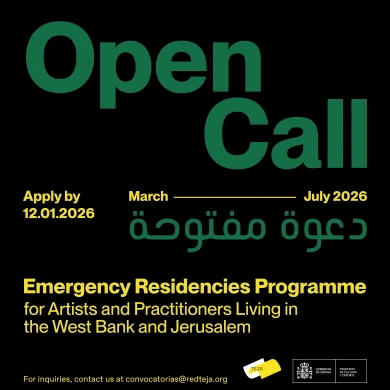
TEJA 2026. Open Call for Emergency Art Residencies
Proposal submission until 12 January, 2026
TEJA / Red de espacios culturales en apoyo a situaciones de emergencia [Network of Cultural Spaces in Support of Emergency Situations] has the mission to promote transnational cooperation by offering temporary art residencies to artists and cultural practitioners who find themselves in complex socio-political situations in their countries of origin. During their stay in Spain, residents receive accommodation, legal and psychological counseling, and access to a network of organizations and professionals with whom they can share, develop, and continue with their creative projects. The goal is to provide a safe and stimulating environment where artists can continue their work despite adverse circumstances and generate dialogue spaces that ensure freedom of expression through joint activities both in Spain and with international collaborators.
During 2026, TEJA hosts three new residencies, each lasting three months, dedicated to supporting artists and cultural practitioners residing in the West Bank and Jerusalem. In addition, in the second half of the year, TEJA hosts three additional residencies for Gazan artists, which are offered by invitation (as Spain is currently unable to facilitate evacuations from Gaza, these invitations are coordinated through France). These residencies aim to provide a stable, creative environment and foster artistic exchange in the face of ongoing adversities. Through this new program, TEJA reaffirms its commitment to amplifying Palestinian voices and empowering artists as they navigate these turbulent times.
The selection is carried out by the TEJA network in close collaboration with each hosting partner. This year the hosting partners are: La Escocesa (Barcelona), hablarenarte / Planta Alta (Madrid), Espositivo (Madrid), Institute for Postnatural Studies (Madrid), Casa Árabe (Córdoba). The selection prioritizes the artist’s personal and professional situation first, and then the alignment with the practices and themes of the hosting spaces. Proposal submission deadline is January 12th, 2026, 23:59 h.

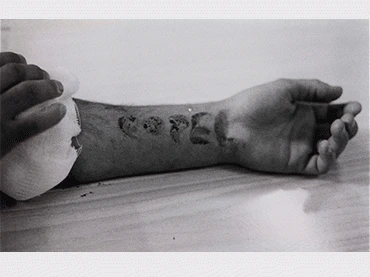
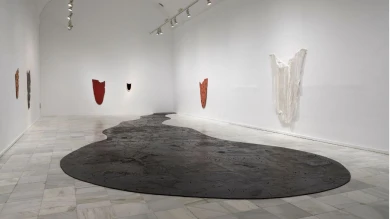
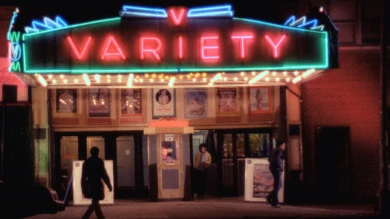
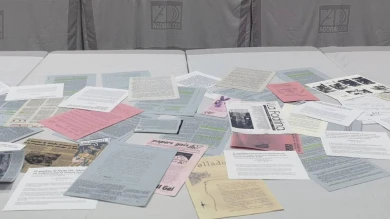
![Miguel Brieva, ilustración de la novela infantil Manuela y los Cakirukos (Reservoir Books, 2022) [izquierda] y Cibeles no conduzcas, 2023 [derecha]. Cortesía del artista](https://recursos.museoreinasofia.es/styles/small_landscape/public/Actividades/ecologias_del_deseo_utopico.jpg.webp)
![Ángel Alonso, Charbon [Carbón], 1964. Museo Reina Sofía](https://recursos.museoreinasofia.es/styles/small_landscape/public/Actividades/perspectivas_ecoambientales.jpg.webp)